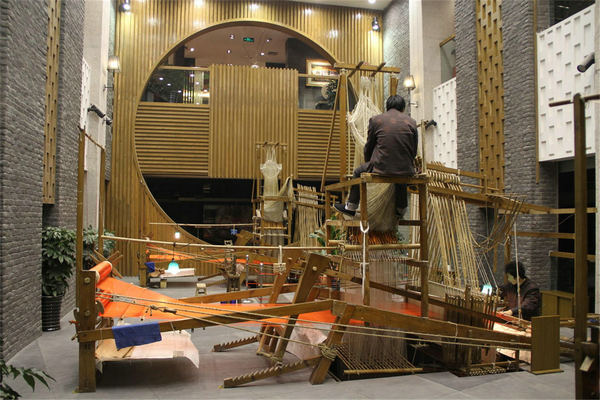 |
|
A weaver produces Shu brocade with a dahualou loom at the Chengdu museum. [Photo by Huang Zhiling/China Daily] |
Instead of working in Chang'an, capital of ancient China, which is today's Xi'an in Northwest China's Shaanxi province, the officer stayed in Chengdu, says Huang Nengfu, a professor of arts and design at Tsinghua University in Beijing.
"Due to its complex production technique, high cost labor and time, the price of brocade used to be as much as gold back in the day," says Xie Huiru, a 90-year-old former weaver, who started learning brocade-making as a 9-year-old because of poverty.
In 2006, the weaving techniques of Shu brocade were included on the list of intangible cultural heritage by the State Council, China's cabinet.
At the Chengdu Shu Brocade and Embroidery Museum, visitors can see brocade featuring the giant panda, flowers, birds, famous works of calligraphy and paintings, as well as China's folk customs.
One of the most eye-catching sights is dahualou, which literally translates to "big jacquard platform". It is a wood loom built in the late 18th century. Made entirely of wood, dahualou doesn't have a single nail to connect its different parts. It can be detached and reassembled easily.